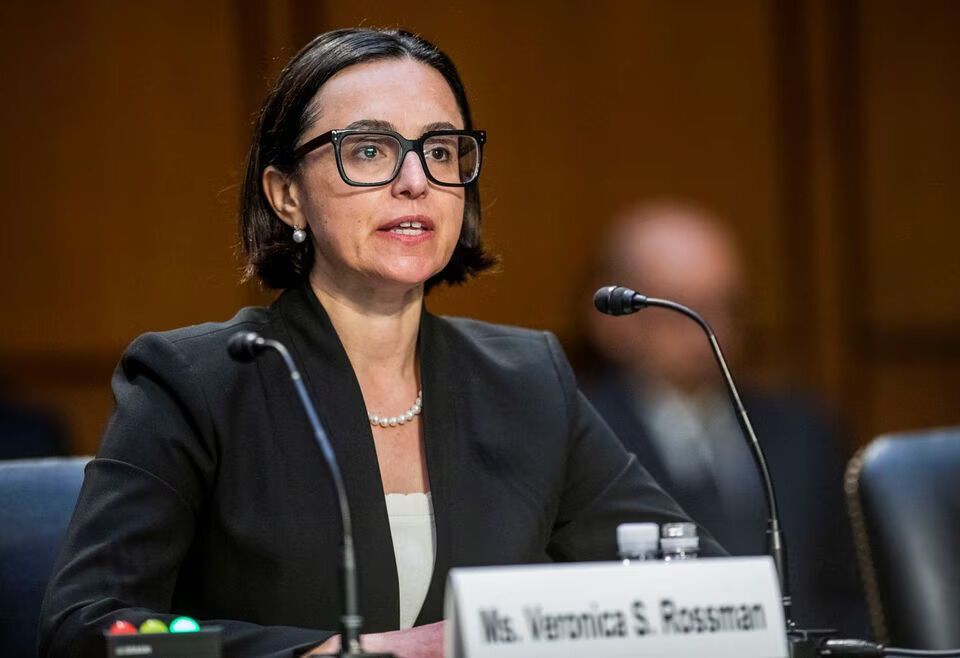10th Circuit considers whether parents can pursue relief from Colorado ‘chosen name’ law, policies

Some members of the Denver-based federal appeals court on Tuesday appeared skeptical of an attempt by two parents to block a Colorado law requiring public schools to use a student’s chosen name, as well as their school district’s corresponding policy intended to support LGBTQ students.
At the same time, one judge’s questioning seemed sympathetic to the parents’ characterization that the underlying measures enable school officials to “lie” to parents about their child’s gender identity by withholding certain details at the child’s request.
When the plaintiffs “did have conversations with the school about their daughter, the school’s representatives didn’t use the names and pronouns they were using for (the child) at school,” said Judge Carolyn B. McHugh to the state’s lawyer. “Do you see that as a concern at all?”
The Sept. 9 oral arguments before a three-judge panel of the U.S. Court of Appeals for the 10th Circuit came months after a trial judge rejected the attempt by “John and Jane Doe” to block policies that would allegedly allow Brighton-based School District 27J to facilitate their daughters’ gender transition without informing them first. Primarily, the request for a preliminary injunction was denied because the Does failed to show their daughters were imminently facing a gender transition in the way the Does feared.
The Does alleged their right to substantive due process was implicated because, broadly, they have the right to consent to a school’s “social transition” of their child from one gender to another. Alternatively, the Does claimed a social transition amounts to medical treatment for which parents have decision-making power.
“Do you have any case you can point us to where a court has accepted your theory that this type of social transition, as you describe it, is healthcare?” asked Judge Veronica S. Rossman.
“I cannot point to a case that holds how you have defined it explicitly,” responded Joshua W. Dixon, the attorney for the Does.

Rossman, a Joe Biden appointee, was also receptive to the notion that the school district would not be misrepresenting their children’s gender to the Does, possibly in violation of their constitutional rights, without hypothetical events occurring.
“What you’re saying is the informational injury the plaintiffs allege that arises from the existence of the laws requires the student to have opted in and invoked the chosen name law and policies. And if she has not done so, even if she may be struggling with her gender identity, there is no informational injury currently?” she said.
Correct, responded Elliott Hood, a lawyer for District 27J who is also a member of the University of Colorado’s Board of Regents.
The Does, who sought to proceed anonymously in court because it is “fashionable to be LGBTQ+” at their daughters’ schools, alleged their eldest daughter asked her counselor to note in the school’s software that she used non-female pronouns during her first year in high school. The child, identified as A.D., also indicated at the time that she would like to go by a different name.
Although the Does were aware A.D. was identifying as a boy and were concerned about it, she did not feel physically unsafe. A.D. wrote in court documents that her parents did not know she “was being socially transitioned at school.” At the end of her sophomore year, A.D. began informing her teachers and advisors she was again identifying as a girl and using her birth name.

The Does filed suit to block the law and policies that allegedly left them in the dark about their daughter’s gender identity at school by making her the decision-maker.
The Does characterized District 27J’s guidance in their court filings as a “Parental Exclusion Policy,” but the district and Colorado Commissioner of Education Susana Córdova countered that the Does were trying to undermine anti-discrimination policies.
“Plaintiffs ask this Court to break new ground and extend their constitutional parenting rights to require consent every time a school affirmatively allows their child to use a chosen name or pronoun at school. The constitution requires no such thing,” wrote the Colorado Attorney General’s Office.
Initially, U.S. District Court Judge Charlotte N. Sweeney, the first openly gay federal judge in Colorado, believed the Does had not shown any ongoing or imminent injury from either state law or District 27J’s policies that would merit a preliminary injunction.
“Despite the claim that ‘the District is socially transitioning their children,’ the District is not the decision maker at issue: the student is,” she wrote in a Jan. 24 order. “The Law and Policies only require the District to follow the student’s chosen name and pronouns and to provide support. There is no indication that the Law or Policies provide the District with any decision-making power, and there is no indication that it shifts decision-making power from parents. The power to make decisions regarding a student’s preferred name and pronouns has always resided with the student.”
Although the Does argued “peer pressure” may cause A.D. to change her name or pronouns again, Sweeney noted the law “would not apply to a student choosing to use a different name to conform to peer pressure.” Finally, she added there were no indications the Does’ younger daughter was interested in transitioning her gender.
“The public also has an interest in establishing learning environments free from discrimination, and Defendants have made a clear showing that the Law and Policies facilitate that interest,” concluded Sweeney, a Biden appointee.
She simultaneously issued an order dismissing Attorney General Phil Weiser as one of the defendants.

To the 10th Circuit, the Does argued that parents have the right to “obtain truthful information” from schools, but the policies prevent them from receiving accurate details about how their children are identifying. They clarified that they were only objecting to school district actions that affirmatively lead children to transition genders without their consent.
“Here, the argument is that these don’t say one way or the other — they don’t speak to whether they’re prohibiting the parent, letting the parent know. It’s up to the child to say whether they feel comfortable,” observed McHugh, a Barack Obama appointee.
“If my clients were to pick up the phone right now and call the school and say, ‘Are my children being socially transitioned?’ and the school said no, the parents have no way of knowing whether that’s because their child says, ‘No, my parents are unsupportive’ or because the school is not socially transitioning them,” said Dixon, the Does’ attorney.
Earlier this year, in a different case out of a Larimer County school district, McHugh wrote that she believed policies requiring employees to help students “conceal” their gender identities from parents do implicate parents’ constitutional interests.
Judge Allison H. Eid, a first-term appointee of President Donald Trump, was the final member of the panel hearing the Does’ appeal.
The case is Doe v. Weiser et al.












